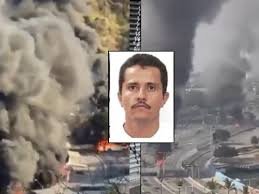A five-part investigation into spine-chilling cases of violence and impunity across Manipur’s conflict zones—murders unsolved, lives unacknowledged, justice delayed or denied. This series sheds light on those left behind in the shadows of state failure and silence. It also exposes the gross injustice and discriminatory approach of the prosecution—both in Manipur and across the Indian legal system—where “some” victims are “conveniently” forgotten, and accountability remains elusive.
BY Navin Upadhyay
“The dead cannot cry out for justice. It is the duty of the living to do so for them.”
—Lois McMaster Bujold, Diplomatic Immunity (2002)
This powerful line from Diplomatic Immunity (2002) by American author Lois McMaster Bujold echoes hauntingly through the hills and valleys of Manipur. Two years after the ethnic conflict erupted on May 3, 2023, justice remains a distant dream for many.
Nowhere is this more painfully evident than in the case of the gang rape and murder of two young Kuki women in Imphal on May 4, 2023. Despite credible allegations that nearly 100 individuals were involved in their assault, not a single arrest has been made to date. For the victims’ families and the wider Kuki-Zo community, this absence of accountability is a devastating reminder of institutional apathy.
The tragedy unfolded just a day after ethnic clashes erupted across Manipur on May 3, 2023. Sparked by tensions over the Meitei community’s demand for Scheduled Tribe (ST) status, the violence quickly spiraled into widespread attacks on homes, churches, and civilians—primarily targeting the hill-based Kuki-Zo tribal community.
READ: Least Manipur Forgets Them (Part 1): David Thiek’s Beheading — Two Years On, No Arrest
The two victims—aged 21 and 24—were employed as caretakers at a car wash in Imphal East. Renting a modest room in Konung Manang locality of Porompat, they led a quiet life, far from their native village of B. Phainom in Kangpokpi district.
Attacked by a mob & taken away from a car wash in Imphal where they both worked & had taken shelter as ethnic riots broke out, bodies of two women were later found, covered in blood, and their families still await justice.
Watch #ThePrintGroundReport by @SonalMatharu &… pic.twitter.com/xKYjlouqY9
— ThePrintIndia (@ThePrintIndia) July 27, 2023
On the evening of May 4, a large mob stormed their room . Eyewitnesses reported that the attackers—armed and aggressive—assaulted them for over an hour. Their mutilated bodies were later discovered , surrounded by physical evidence including hair strands and bloodstains.
Despite this, no postmortem report has been shared with the family. No forensic report has been made public. No suspects have been named.
The women’s families initially filed an FIR at Saikul police station in Kangpokpi district, where they resided. However, the FIR was transferred to Porompat police station in Imphal East only more than a month later, in June.
Kuki-Zo community leaders allege that the silence surrounding this case is intentional, citing the possible political connections of the perpetrators.
READ: ECI Faces Backlash Over Bizarre Entries in Bihar Voter Roll
In July 2023, the Supreme Court of India took suo motu cognizance of multiple cases of gendered violence during the Manipur conflict. Chief Justice D.Y. Chandrachud, expressing concern over the delays, noted that only 252 arrests had been made out of 6,253 FIRs registered.
A day later, the Court described the Manipur government’s handling of the violence as a “systemic failure.” The bench criticized the lack of eyewitness testimonies and the police’s failure to record statements from neighbors and potential witnesses in multiple rape and murder cases.
As a corrective measure, on August 7, 2023, the Supreme Court set up an oversight committee headed by Justice Gita Mittal (former Chief Justice of the J&K High Court), and appointed Dattatray Padsalgikar, former Mumbai Police Commissioner, to supervise investigations into 19 high-profile cases, including this one.
The Central Bureau of Investigation (CBI) took over the probe. However, two years later, no breakthrough or arrest has been announced.
The case has become emblematic of the broader crisis of justice in Manipur. While social media continues to circulate pictures and disturbing accounts of the incident, official silence persists. The two victims have now become symbolic of the atrocities committed during the conflict, and injustice.
Women’s rights organizations, both in Manipur and nationally, have repeatedly demanded a time-bound investigation and public disclosure of case progress, but their pleas have gone unanswered.
In a conflict marked by unspeakable violence, the case of these two young women stands as a stark reminder of how justice can be denied and buried beneath layers of political and bureaucratic neglect.
Unless acted upon, their story risks becoming not a cautionary tale, but a forgotten one.














